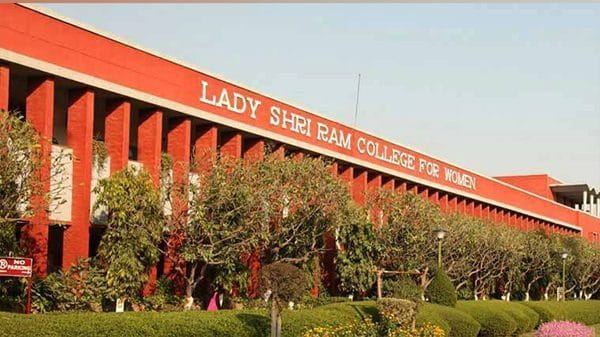Just a few days ago, I was celebrating the Olympic medalist from my alma mater, LSR, who had won two bronze medals in shooting. Today, I was stunned to see the not-so-flattering ranking of my undergraduate college in the National Institute Ranking Framework, or NIRF. Not only did it fail to make the top five, but it also dropped from rank 9 in 2023 to rank 10 this year. This downward trajectory since 2021 has been disconcerting and disappointing. It brings a sense of despair because, not only do I take great pride in being an LSR alumna—especially in a family where others have ranked in the top five—but throughout my career, whenever I have been struck by someone’s excellence, she has invariably turned out to be an LSR alumna.
Expectations have always been high for LSR. Why? Because we have always known it to be a college with the best faculty and distinguished alumni who have made an indelible mark in their fields—economists, bankers, lawyers, mathematicians, authors, journalists, and many more across disciplines from sociology to the arts. I recall my student days at LSR in the early 1980s, when internal competition was so intense that it motivated us to excel in internal exams and national or global competitive exams. This excellence cuts across all subjects. My entire economics class joined the DSE Master’s programme in 1985, and the lecture hall there looked like a mini LSR class in economics.
I am no expert on the ranking system or the logic behind the weightage of each parameter, but from what I understand, a few key parameters decide the overall rank. Teaching, Learning and Resources (TLR), and Research and Professional Practice (RP) account for over 50 per cent of the weightage. LSR appears to have lost points in these areas, particularly in research and publications. A rank of 29 is dismal.
So what if we are a humanities or social sciences college? That doesn’t preclude us from conducting world-class research, producing well-researched articles, publishing them in leading journals, being quoted for our work, receiving citations, and achieving other milestones that qualify us for a top rank. The discipline shouldn’t matter. What is needed is a system that encourages and incentivises research excellence and the publishing of innovative work.
On a wee bit of introspection, what stood out during my student days, and I am confident it still exists, is the passion with which the faculty deep-dived into their subjects. Even in optional subject classes, there were times when we made excuses not to bunk class but eagerly gulped down ‘chai’ and sat through the two hours, wondering why we hadn’t made the optional our elective! Whenever we reminisce about LSR at alumni get-togethers, it’s this imagery of college corridors, the common room, the library, and the green lawns buzzing with ideas and blended thoughts that comes alive.
How can I ever forget the class interactions where we were not just taught but encouraged to question the hypothesis? During my Master’s in Japan, I was often self-conscious about this habit, which alienated me from quieter Japanese students. At LSR, during an assignment on the Indian economy, almost all of us scored poorly. We convinced our tutorial teacher to give us a second chance, and as a result, some of the best papers emerged from our group. That’s the college I remember—professors encouraging us to read, reflect, and improvise. We learned what critique was, and teachers were never exasperated by our constant demand for more thought-provoking lectures. Many of our well-researched notes and papers were much in demand by friends from other colleges, including IIT-Delhi.
We need to get that mojo back. LSR continues to have an excellent faculty and illustrious alumni among the best globally and across different disciplines. LSR has received global recognition for its thought leadership, critical thinking, problem-solving, strategic communication, and research, thanks to its faculty and alumni. Therefore, we should have scored highest in Perception, TLR, and RP.
In parameters like outreach and inclusivity, there is always room for improvement. LSR and its alumni successfully partnered to contribute to digital inclusion for students during Covid. We have a strong ethos of giving back, and alumni-college collaboration can produce excellent outcomes. We just need to acknowledge where we fell short and pull ourselves up.
With a capable faculty, increased published research will do wonders. Target well-known journals for greater visibility. Organise more joint programmes with alumni, including mentorships and peer reviews. Greater visibility means more opportunities and funding to push the frontiers of research.
Build that momentum, and we will certainly see LSR rise in college rankings. Yes, we have what it takes to slay the system. Go for it.
Vinita Sethi, an independent director and consultant, is an ELSA (LSR alumna @LSRELSA, batch 1985). Views are personal.
(Edited by Prashant)







Seems like former LSR students have been deeply hurt by the truth. They would have been able to see it only if they had kept their eyes open. LSR was always grossly over-rated. In general, Delhi colleges are over-rated.
Colleges in Chennai, Bangalore, Pune and Kolkata, though much “lower ranked”, provide much better standards of education. Top research institutions like TIFR, IISc, ISI, CMI, etc. are filled with graduates from Chennai, Bangalore, Pune and Kolkata colleges. Even a cursory glance at this year’s incoming batch of students at these hallowed research institutions prove the point.
In instances like this, The Print comes across as a regional chauvinist – by, for and of Delhi.